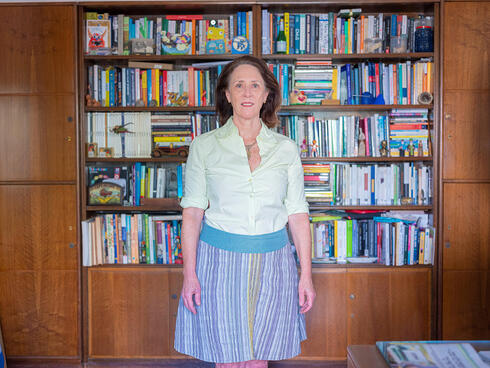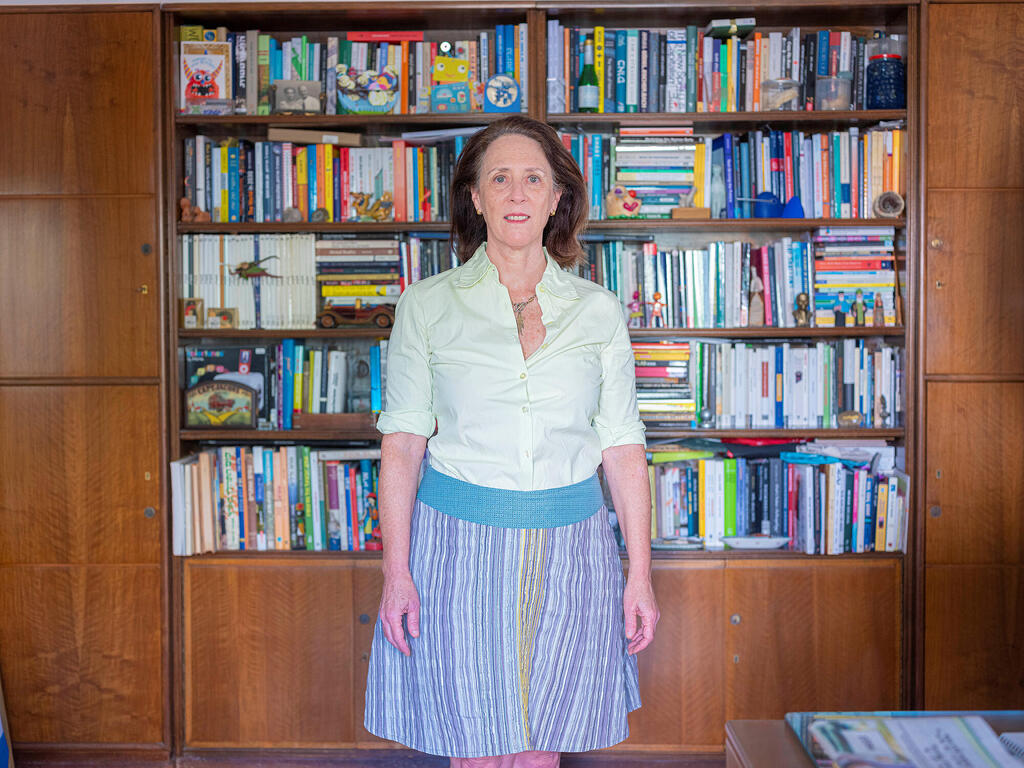
"The state is responsible for protecting citizens from AI"
Dr. Galit Wellner, an advisor to the Ministry of Innovation and Science, explains that in a world where "we have almost no tools to prove the harms of artificial intelligence, it is the state's responsibility to protect its citizens through regulation." Regarding AI's capabilities, she says: "The future is scary, but it can also be inspiring"
Dr. Galit Wellner, an advisor to the Regulation and Artificial Intelligence Forum of the Ministry of Innovation, Science, and Technology, is awestruck by the capabilities of AI, but also worries about it crossing red lines. In a candid conversation with Calcalist, she explains what exactly we should be afraid of and where the role of the regulator comes into play.
"Today the prevailing discourse in the State of Israel is that we need to take care of startups, because we are a startup nation and we should not disturb them too much. I think that the state's responsibility is to protect its citizens, and accordingly we should put them first and take care of them through regulation, because today we have almost no tools - certainly not in advance but not even in retrospect - to prove damages. It is difficult to prove, for example, if a system based on artificial intelligence discriminated against us, one can only suspect and fear that it might. For example, I have no idea and no way to know if the bank gave me a high interest rate just because I'm a woman. I have no legal tools to deal with this and I think that in this place the legislator should protect me."
Where else is it possible that we are discriminated against or influenced on a daily basis and we don't know it?
"We saw the effects in the election campaigns in the United States in 2016 and Brexit in Great Britain. In Israel on October 31, elections will be held for the municipal authorities. There will also be elections for the Knesset and the government in the future, so we must make sure that the election systems are managed according to our democratic rules. Today the rules are set by companies that reside in California. It's hard for me to sue them, even in Israel. And this is where I lack tools. This is the place that scares me so much, and that's why I think our legislator needs to act, and act quickly."
How do you begin to legislate and regulate this massive field?
"My dream is to have general legislation in the fields of technology. Look, for example, what happened with the European Union - they messed with the definition of what artificial intelligence is. This is a question that people make an entire academic career out of. I think we need to refer to digital systems in general by law. I don't care if they are called artificial intelligence, or a few years ago we called them big data. What does it matter if you call it machine learning or deep learning? I want general legislation that will address all digital technologies. We want three principles to be understood in all of them: fairness, responsibility and transparency. These are very basic principles that should apply to all systems - of banks and insurance companies, all internet commerce - everything should include these principles. Take for example the topic of buying plane tickets. After all, every time I go to the site to buy tickets, the search engines change the price, always upwards, and why is that? Because there are so many cookies (a technological tool used to track and store information about users on websites) and so many follow me, so the price is tailor made for me personally. The consumer has no way to sue or know how these things are determined, they can only suspect and be skeptical, but there are no legal tools, and I want to fix that. As soon as there is a general law it is possible to make specific legislation for artificial intelligence in medicine, in autonomous vehicles, perhaps in more security applications such as police cameras for security and facial recognition. But all these will be specific legislation within the overall law, which regulates the technologies and their place in our world and will give us as citizens the right to protect ourselves and ensure that we really get what we deserve."
How should one think about regulation on the subject?
"The best image I have as of this moment is the image of regulation for vehicles. When the car was invented at the end of the 19th century, there was no regulation on it. 10-year-old children could get into the car and start driving. There were no traffic signs and they could drive and do whatever they wanted - it’s the most freedom there is. Then, after accidents happened, regulation began. So first of all they said you need a driver's license to operate this technology. Not every child can operate it. At the same time, a regulation of the roads themselves, of the infrastructure, was also developed, which says that there are traffic lights and there are road signs, there are traffic lanes. I can't travel where I want and how I want. And now there is also a regulation on the technology itself, of the vehicles, I need a car license. And just as there is a Ministry of Transportation, perhaps there should be a Ministry of Digital Technologies, which will regulate all the elements."
From whom should we take an example for legislation on the subject?
"The example would be a kind of collage. This will be a collection of examples. The European Union of course. They do an amazing job, but it's not perfect. I would even take a little from the Chinese who already require that artificial intelligence systems receive some kind of standard, and pre-certification. You have to take components and examples from many places in the world."
Do you believe that the State of Israel can promote such legislation? Our legislation in the area of privacy is very outdated and has not yet undergone a noteworthy update for the information revolution.
"I want us to be a light unto the nations, and I think we can do it. We received a fascinating example from the Italians, who a few months ago decided to ban the activity of the ChatGPT artificial intelligence chatbot due to privacy issues. And people wondered, 'Who are the Italians, to tell them what to do?' But it is a fact that there were things that changed in the system itself to answer the problems that the Italians raised, such as increased transparency to the way the bot processes user data, and added power to users to turn off the possibility that the conversations will be used to train the algorithm. And after the corrections, they approved its operation.
"I think that in the same way we can also lead and I think that if there are companies that are fair, they will appreciate it. We are talking about a kind of ecosystem, a comprehensive system in which there are different stakeholders, and users who need to be heard. There are the regulators who are in charge of regulating the market and of course there is also room for companies and startups. Everyone should talk to each other and reach insights and understandings of how we want to live, and conduct ourselves together because we are in the same boat. In this sense, the legislator should not come and force things. I believe that this will fall on attentive ears, at least in most companies ".
What part would you like companies to take in shaping the legislation? Because they are known to be very involved, Sam Altman from OpenAI really put on a show to influence the legislation.
"We need to give respect to the end users, their voice is not heard. You can hear the companies perfectly, they speak great and employ an army of professionals. Today there are organizations that volunteer to give a voice to the users, but it is difficult for them to compete with the big companies. In the Ministry of Innovation, Science and Technology and in the Ministry of Justice there is this openness and we talk about it, but we have to be careful and include not only the companies but also the users."
What do you think about the call to stop the development in the fields of artificial intelligence? Among other things due to the idea that artificial intelligence poses an existential threat to the future of humanity?
"Many technologies have been said to pose a danger to the future of humanity. They also said that about the atomic bomb. Dystopia is not new. The future is scary, yes, but it can also be inspiring and it is in our hands - what we are going to do and how we will do it. I am a naturally optimistic person. That's why I don't tend to believe the pessimists. I think we actually have a good chance to take it to a good place, but we have to take care of a few small things along the way."














